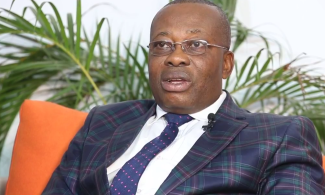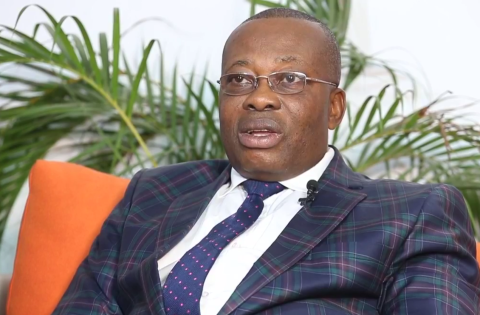
Ubani said this in an interview with SaharaReporters while commenting on the increase in fuel prices by the Petroleum Product Price regulatory agency.
A former Vice President of the Nigerian Bar Association, Monday Ubani, has said that most of the activists that powered the fuel subsidy removal protest in 2012 were now hobnobbing with the present administration.
Ubani said this in an interview with SaharaReporters while commenting on the increase in fuel prices by the Petroleum Product Price regulatory agency.
According to him, Nigerians were also more fearful of being detained than they were in 2012, hence the silence that has greeted the increase in price.
The PPPRA said on July 1 that the price of petrol for July would be between N140.80 and N143.80.

Ubani while reacting to the development, said, “Many of activists who fought in 2012 are in bed with this present government; they may not be forceful enough to take any position considered inimical to the interest of the elites in power.
“Nobody wants to be thrown into detention. This is a government where the DSS feel empowered to say they cannot obey any court in the East.”
Following the decline in petroleum prices, the Nigerian Government through the PPPRA decided it was time to take out fuel subsidies, a move it made in May 2016 and later reversed.
The PPPRA announced in March 2020 that it would announce a new price band every month, which it has consistently done since April.
The agency was able to take this decision because the landing cost of the product had dropped below the subsidised price of N145.
Back in February 2016, a former Executive Secretary of the PPPRA, Farouk Ahmed, said government earned N2.6bn from recovery.
He said the landing cost of the product was N13.81 per litre less than the retail pump price of N86.50.
This implies that the landing cost had gone as low as N71.59.
Ahmed said an account was opened to stash the over-recovered funds.
He said, "As of February 3, 2016, the estimate in that account (because we are verifying based on what was imported) is a small amount of about N2.6bn.
“But this is just the beginning because some of them are just arriving in December. That is why the subsidy over recovery is low."
The price of a barrel of Brent crude at this time was $32.18.
By May 2016, a barrel of petroleum had increased to $46.74, forcing the landing cost to go above N86.50.
The Nigerian Government, however, decided that it would remove the subsidies.
As the price of oil increased, the President is reported to have told the NNPC to keep paying the subsidies.
The Federal Government on its part stopped budgeting for subsidies, leaving the country’s oil company to deduct it from their revenue earnings.
The control of the petrol pump price by the dollar-denominated oil, which Nigeria is an exporter of, is more painful to Ubani than the subsidies.
He said, “For you to come into power and promise that every year you will be building refineries, yet the only one that is standing now is the one been built by a private person, is demonic.”
Between 2014 and 2018, three of the country's refineries lost N1.6trn.
This is according to the corporation's audit report, which was released in June.
In 2017, pioneer director, Centre for Gas, Refining and Petrochemicals, Institute of Petroleum Studies, University of Port Harcourt, Rivers State, Prof Godwin Igwebueze, said the cheapest modular refinery costs $100m if all the components were imported and assembled in Nigeria
Experts believe that if the Nigerian Government had transitioned from its 20th century constructed refineries to modular refining plants, the N1.6tRn wasted by three sub-optimal performing refineries could have been spent on constructing 52 modular ones with a daily production of 1,000 barrels, which would translate to 52,000 barrels a day and 18.98m barrels annually.
Prof Igwebueze, however, noted that the IPS had a model refining plant which he constructed for $2m.
The professor said that he was able to draw down the price by fabricating most of the components.
If the model design constructed by him was replicated at that same cost, the N1.6trn would have built 2,623 modular plants that could refine 2.6m barrels of oil daily.